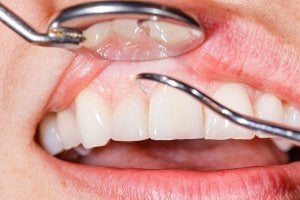-
Come meet Dr. Z!
Hello everyone!
I welcome you to Dental Heights, a family owned and operated general dental practice. My name is Dr. Zishan Bader DDS. We established this office in the summer of 2013 primarily to give the surrounding residents an affordable and up to date dental office for their family’s needs. I must tell you that these past few years have been a blast! We have made so many new friends through the many patients that have walked through our doors. Ive always emphazed a friendly professional environment where our patients feel like they are with those who truly care about the services provided.
A little history on myself:
I went to Lockport Township High School, attended undergrad and dental school at the University of Detroit-Mercy and graduated in May 2009. Ever since, Ive worked tirelessly on keeping myself updated on the latest technology, techniques, and other aspects of dentistry to give true justice to my patient’s experiences with me. I have been blessed to work alongside two great mentors– Dr. Alamdar (my father) & Dr. Shafeeq (my uncle) whom I have learned a great deal from.
I welcome you to come by and meet me personally & my wonderful staff. I can give you a tour of my office and insight on the types of treatments we offer here at Dental Heights!
-Dr. Zishan Bader DDS

-
Have You Maximized Your 2015 Dental Benefits?

Have you maximized your 2015 Dental Benefits?
This is a friendly reminder that dental benefits do not roll over to the next year. If you have pending dental work, please make an appointment before the busy holiday season so we can help you maximize your dental insurance and improve and maintain a healthy mouth for you and your family!
Call us today at (224) 698-1472!
-
What Are the Dangers of Gum Disease?
 Gum disease is a common oral health problem that can cause damage to teeth and gums. As widespread as this condition is, though, consistent oral hygiene can largely prevent you from suffering from it. Your brushing and flossing sessions, as well as regular dental cleanings by a dentist near Schaumburg, can help you enjoy healthy gums for a lifetime and avoid these gum disease complications:
Gum disease is a common oral health problem that can cause damage to teeth and gums. As widespread as this condition is, though, consistent oral hygiene can largely prevent you from suffering from it. Your brushing and flossing sessions, as well as regular dental cleanings by a dentist near Schaumburg, can help you enjoy healthy gums for a lifetime and avoid these gum disease complications: Receding Gums
Plaque buildup is normally the initial cause of gum disease . When bacteria have the chance to feed upon food particles and create acidic byproducts, these substances cling to tooth enamel and harden onto it. In response, the gums may become inflamed, and this inflammation eventually causes them to recede from the gumline. As gum tissue continues to pull back from tooth enamel, it leaves teeth vulnerable to additional plaque accumulation that can foster infection and tooth decay.
Tooth Loss
Without professional gum disease treatment from a dentist, receding gums can evolve into missing teeth. As gum tissue becomes weaker and less able to fortify teeth, you might notice your teeth beginning to shift in your mouth. In some cases, they may even fall out, or your dentist may need to extract them. Once tooth loss occurs, restoration of your smile would likely require dental implants or dentures.
Cardiovascular Disease
Heart disease is one of the most pressing health issues in the United States, and many healthcare providers see a connection between this problem and gum disease. When gum disease is severe, the bacteria causing it can eventually enter the affected gums and the blood vessels supplying nutrients to them. Once in the bloodstream, these bacteria can continue to trigger tissue inflammation. This side effect of gum disease could potentially increase your risk of a future heart attack, heart failure, or stroke. However, making sure that you regularly go to your dental office can safeguard you from these life-threatening issues. During your dental cleanings, your dentist can remove plaque that may be causing gum inflammation and recession to help you keep your smile free from gum disease.
Reference: www.prevention.com
-
The Stages of Gum Disease
 Gum disease is a condition so common that approximately one in two American adults suffers from it. Particularly concerning is that many people are unaware of this threat to their oral health. Periodontal disease may begin with tender gums, but without treatment, it can eventually lead to missing teeth. Once tooth loss occurs, dentures or dental implants in Schaumburg may be necessary to restore speaking and chewing capabilities. To protect yourself from the effects of gum disease, it is important to address symptoms as soon as they present so that this condition does not progress to a more advanced stage.
Gum disease is a condition so common that approximately one in two American adults suffers from it. Particularly concerning is that many people are unaware of this threat to their oral health. Periodontal disease may begin with tender gums, but without treatment, it can eventually lead to missing teeth. Once tooth loss occurs, dentures or dental implants in Schaumburg may be necessary to restore speaking and chewing capabilities. To protect yourself from the effects of gum disease, it is important to address symptoms as soon as they present so that this condition does not progress to a more advanced stage. First Stage: Gingivitis
Periodontal disease develops due to plaque accumulation. Plaque forms when bacteria in the mouth combine with food particles to create a sticky byproduct. This byproduct then builds on tooth enamel. Diligent brushing and flossing can often remove plaque before it causes harm, but when left on teeth for too long, this substance can irritate nearby gums. This inflammation indicates the first stage of gum disease, gingivitis. Gingivitis typically does not produce pain. However, those with it may notice issues such as bleeding or red gums and should see a dentist for these warning signs.
Middle Stage: Periodontitis
When gum inflammation persists, gingivitis can evolve into periodontitis. In response to the presence of plaque, the gums may retract from the gumline. Because gum tissue helps to keep teeth stable, this side effect can initiate the loosening of the teeth. In addition, once gum recession begins, the damage done to gum fibers becomes permanent. Gum recession can also make it easier for bacteria and food debris to collect at the gumline, furthering the advancement of gum disease.
Final Stage: Advanced Periodontitis
Teeth, gum tissue, and underlying bone work together to create a strong and sturdy smile. As the gums continue to deteriorate, periodontal disease can progress to the jawbone. If gum tissue and bone cannot hold the teeth in place, they may eventually shift or fall out. Advanced periodontitis occurs with noticeable movement of the teeth. Since neither bone nor gum tissue can regenerate, affected teeth may require tooth extraction. For those who are diagnosed with advanced periodontitis, help is available. Depending on the need of the patient, a dentist can provide dentures or dental implant surgery to restore the health and appearance of the smile.
Reference: http://www.colgate.com
RECENT POSTS
categories
Archives
2017
2016
2015
- October (1)
- September (2)
- August (4)
- July (4)
- June (5)
- May (4)
- April (4)
- March (5)
- February (5)
- January (5)
